
Recreate Responsibly Outdoors
From camping and hiking to fishing and kayaking, Washington State is known for epic outdoor recreation. That popularity has led to high visitation at some of the state’s national parks and top destinations, especially during the summer months. Many organizations in Washington — including the Recreate Responsibly Coalition, Washington Trails Association, Washington State Parks, and the Washington Department of Fish & Wildlife, among others — are working diligently to help visitors and residents alike recreate safely and responsibly in Washington’s outdoor spaces.
Below, you’ll find tips and links to resources to help you make the most of your trip. Find seasonal information covering everything from wildfires and water safety to winter recreation. New resources will be added as they become available, so check back often when planning your trip. Be sure to explore other sections of our Responsible Travel Hub as well.
Thank you for helping protect Washington’s natural resources and making the outdoors a safe, inclusive space for all.
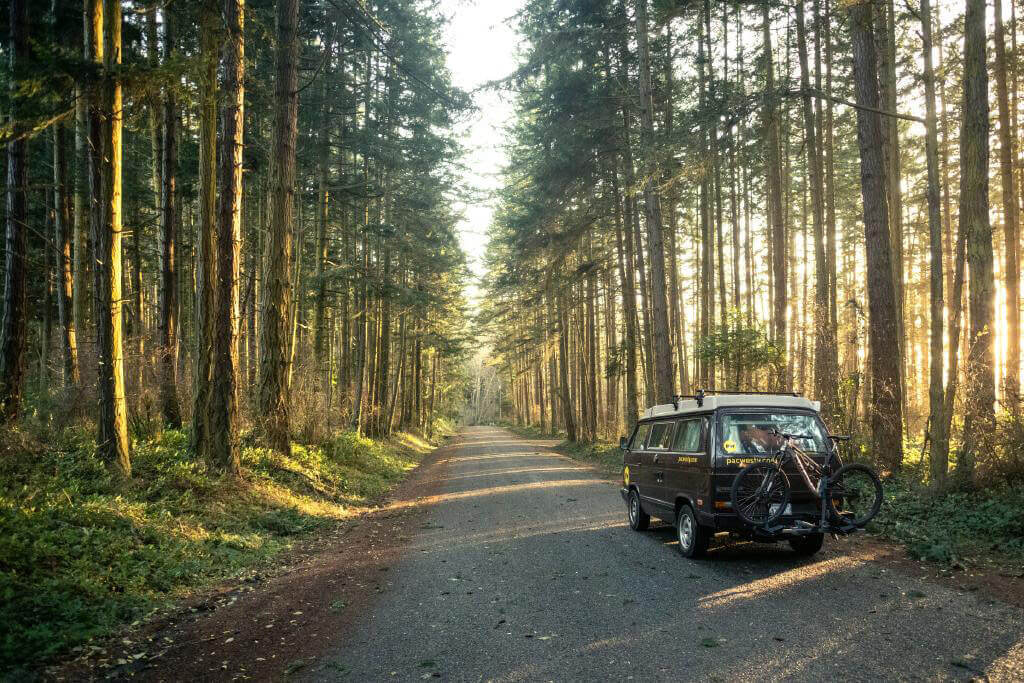
Plan & Prepare
From weather and road closures to required permits and proper gear, planning ahead and coming prepared will help ensure your trip goes smoothly.
Will you need a parking pass or ferry reservation? Are there any seasonal or ongoing road closures? Have you packed the essentials for safe outdoor recreation? Traveling to a new destination can be overwhelming. Here are a few basics to help you get started.
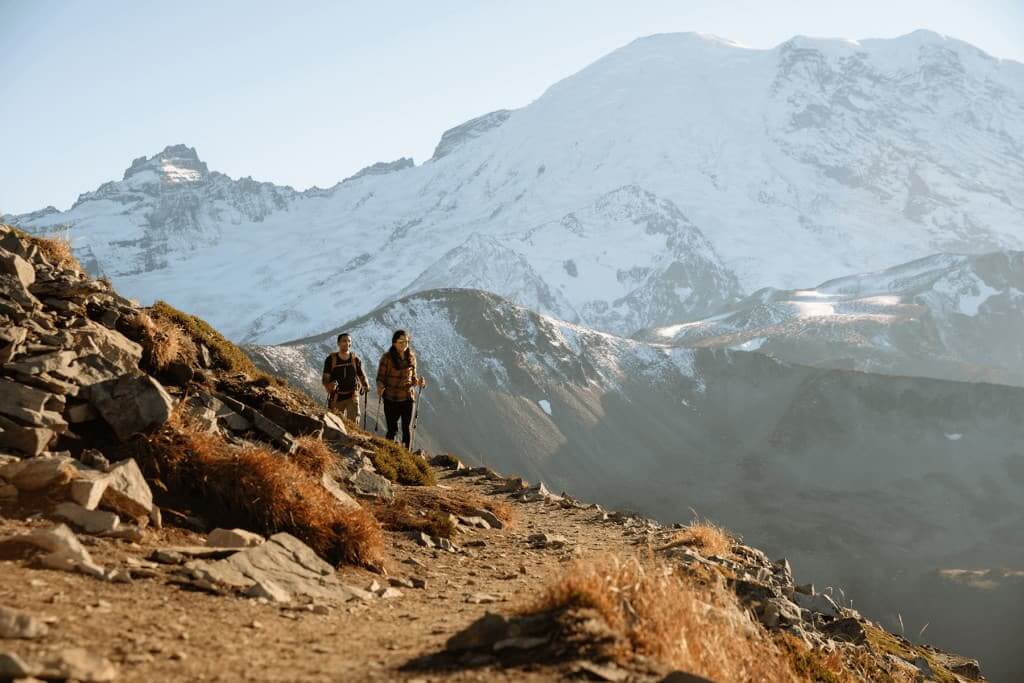
Leave no Trace
When recreating in Washington’s outdoor spaces, follow the 7 principles of Leave No Trace to reduce your impact and ensure the state’s natural beauty remains intact.
- Plan ahead and be prepared.
- Stay on marked trails, and travel and camp on durable surfaces whenever possible.
- Dispose of waste properly and pack out all trash.
- Leave areas as you found them.
- Minimize campfire impacts.
- Respect wildlife and keep your distance.
- Be considerate of others.
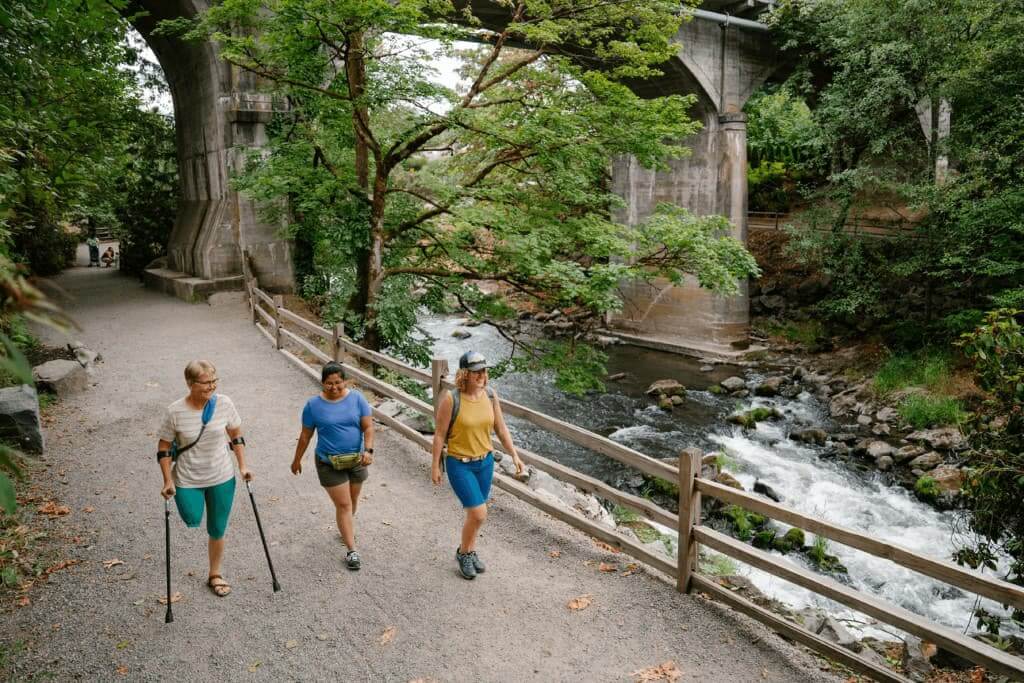
Respect Others & Support Inclusivity
Everyone seeks and deserves a connection with nature, regardless of background, identity, language, or ability. Historically, some communities have faced barriers to accessing and safely enjoying the outdoors. Recreating responsibly includes helping build a safe and inclusive outdoors by being understanding, respectful, and supportive. It also means acknowledging and respecting Indigenous lands and the ongoing stewardship of those spaces.
Looking to find community in the outdoors? Connect with some of Washington’s diverse and inclusive recreation groups:
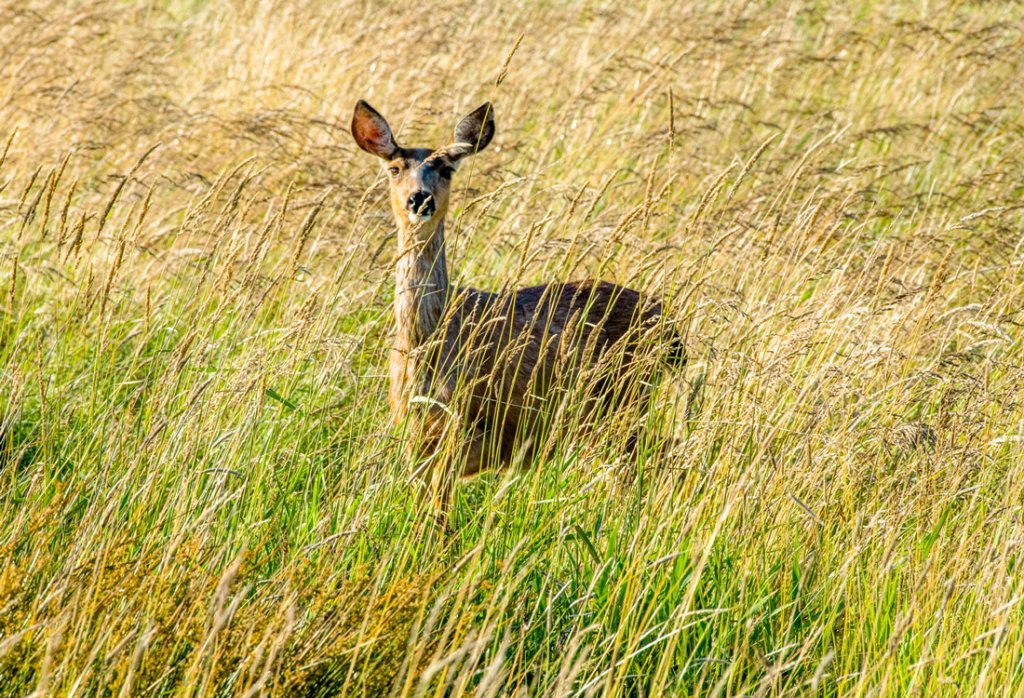
Respect Wildlife
Washington is home to many wildlife species, from foxes and cougars to bears and mountain goats. For the safety of both wildlife and visitors, please keep your distance from all animals. Animal attacks are extremely rare, but it’s a good idea to brush up on tips for how to respond if you encounter a bear or a cougar. In addition to keeping your distance, you can prevent animals from becoming reliant on humans by never feeding wildlife. In general, pets are not allowed on most trails within national parks. Check your destination’s website for specific requirements.
Helpful resources:
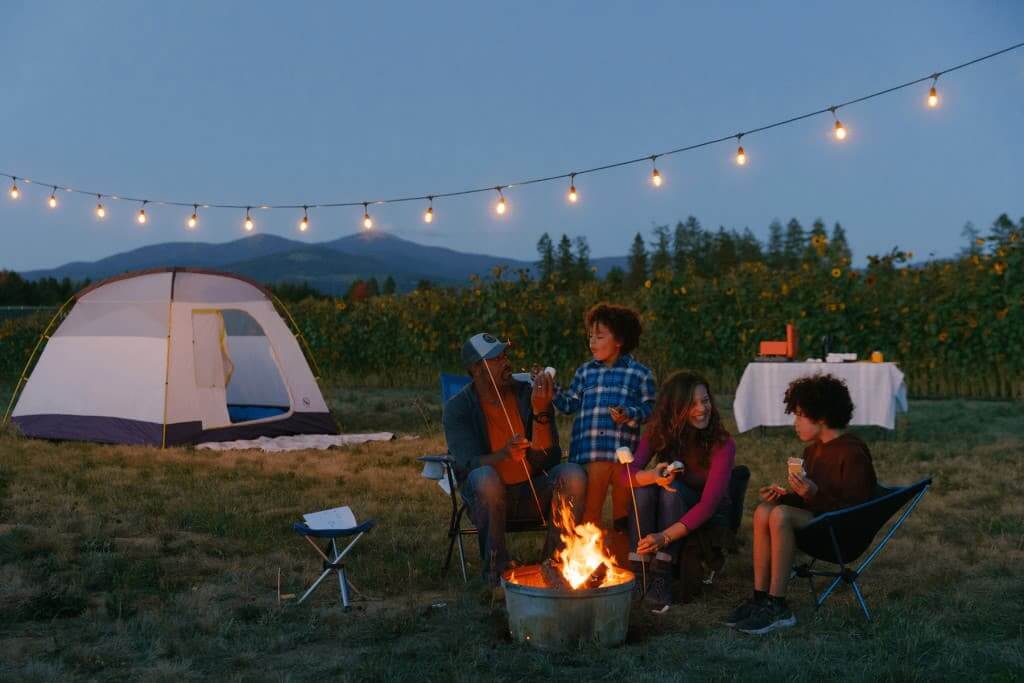
Practice Fire Safety
Washington is prone to wildfires during the dry summer months. Almost 9 out of 10 wildfires are caused by humans and are preventable. Help prevent fires by learning about wildfire safety, having tools on hand to prevent catastrophic wildfires, learning about equipment like camp stoves before use, properly extinguishing your campfires, and never leaving them unattended. Respect fire bans and select a campsite with pre-existing fire rings whenever possible.
Helpful resources:
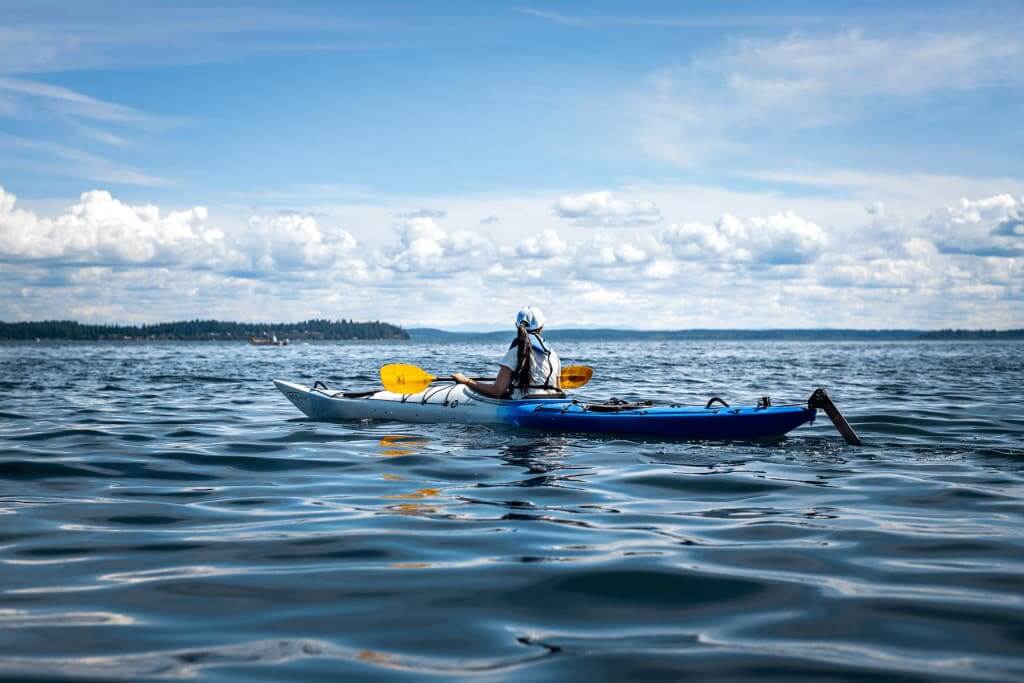
Practice Water Safety
Between 157 miles of Pacific Ocean coastline, almost 70,000 miles of rivers and streams, and more than 4,000 lakes, there is no end to water recreation opportunities in Washington. Water can be powerful, which is why it’s important to plan ahead and know what conditions to expect. Always be prepared for inclement weather, bring essentials such as life jackets and navigational devices, and keep the water clean by leaving the environment better than you found it.
Helpful resources:
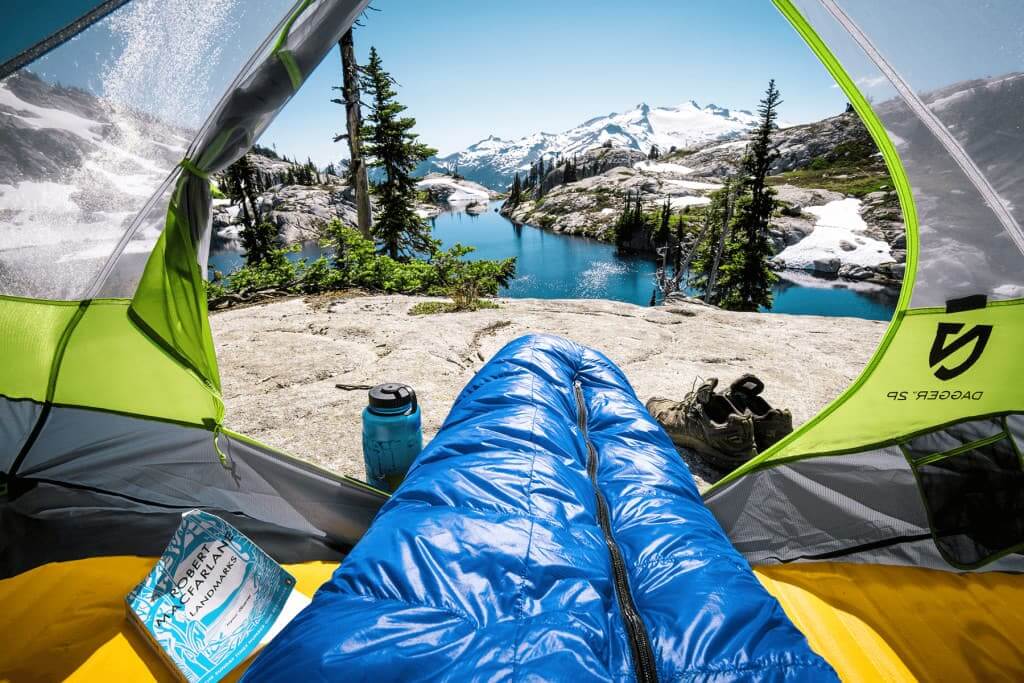
Be A Good Camper
Washington has diverse options for camping all over the state. Before pitching your tent, take time to research the area you are visiting to make sure you come prepared. In addition to proper gear, make sure you secure any necessary permits or reservations before arrival, especially in popular areas and if planning to visit during the busy summer season. While camping, we take up temporary residence in nature and become part of that ecosystem. Coming prepared helps us leave a positive impact on the places we camp, whether at a park, forest, beach, or desert.
Helpful resources:
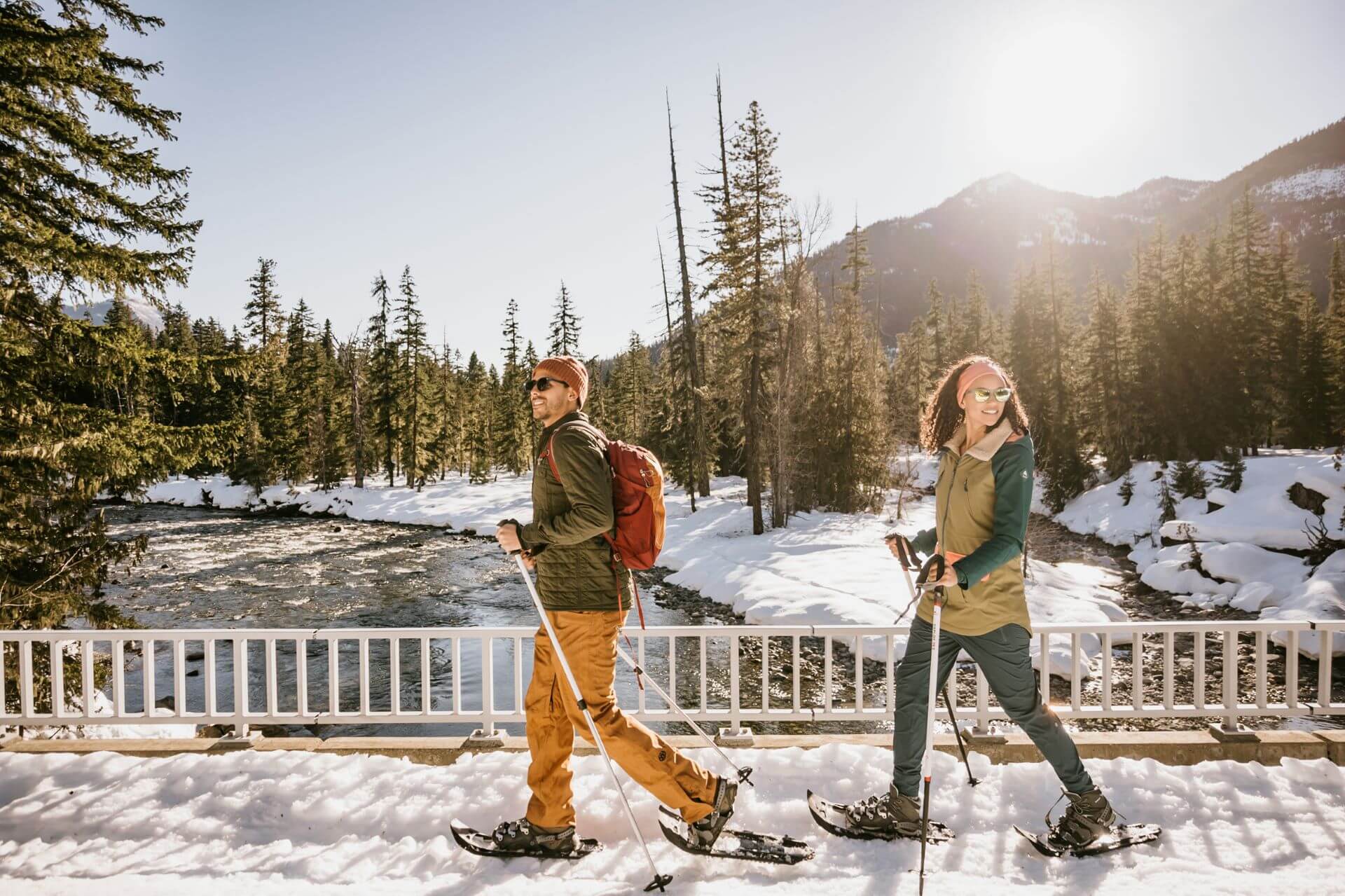
Recreate Safely in Winter
Winter can make the environment more unpredictable, so it’s essential to be prepared before heading out for snowsports or camping. Check mountain passes and road conditions and always have a plan B in case the weather changes. Bring proper gear, take nature seriously, know your limits, and always let people know where you are going. If you plan to visit the backcountry, be sure to brush up on avalanche safety tips.
Helpful resources:
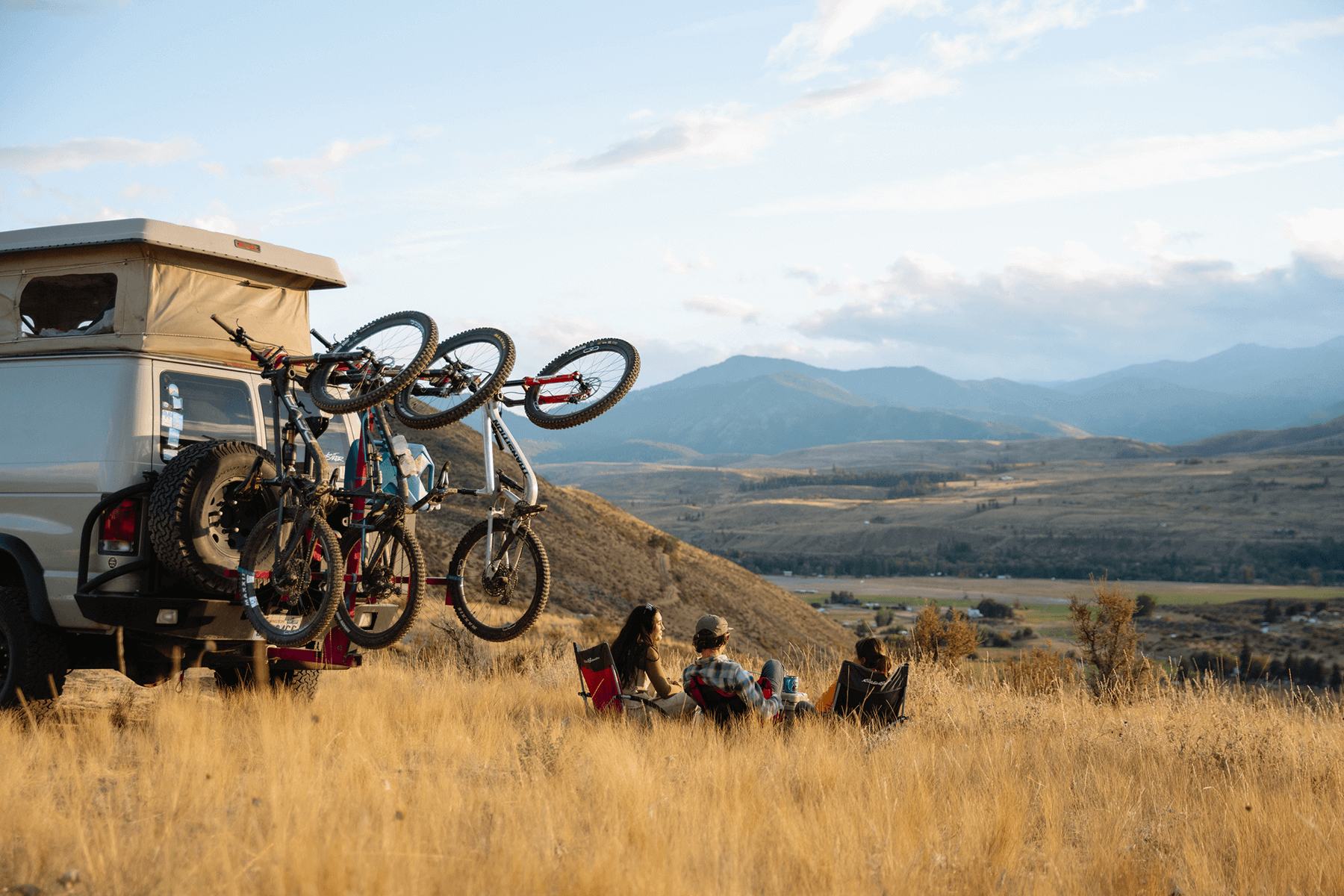
Recreate Off-Highway Responsibly
With so much room to roam, there are endless ways to explore Washington State. If heading off-highway, help maintain the land for future 4-wheel adventurers by following the Tread Lightly principles. Be mindful of tracking invasive species with your vehicle. Remove as much plant material from your vehicle as possible before heading off highway. Travel responsibly with your vehicle by staying on designated roads and trails, educating yourself about local regulations, respecting private and protected land, and modeling proper behavior.
Helpful resources:
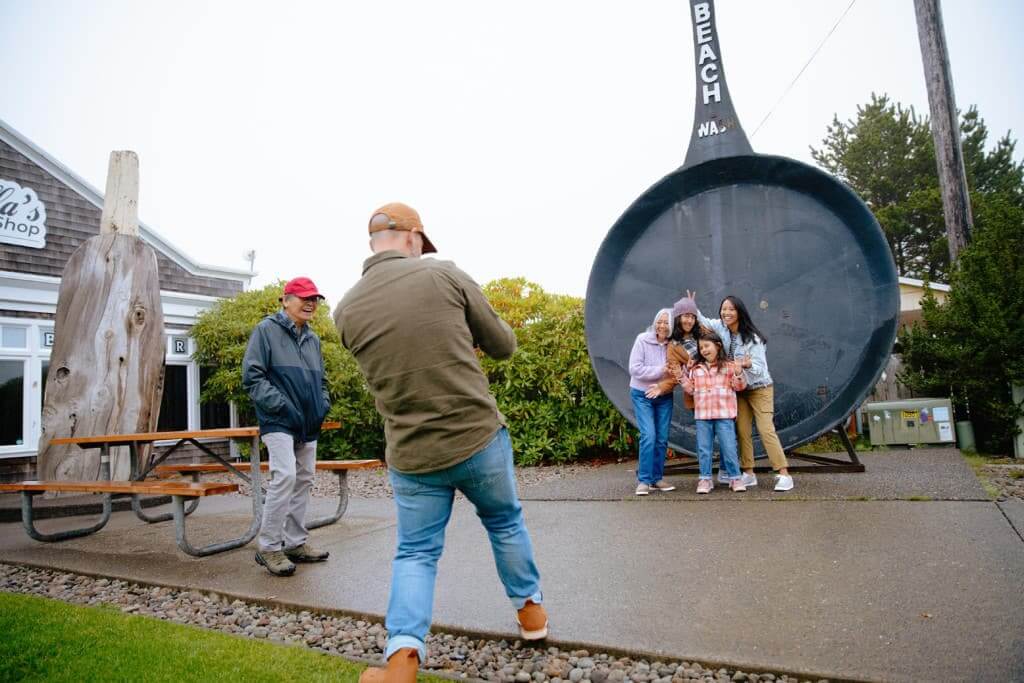
Create Content Responsibly
Sharing your Washington State trip with friends and family or on social media can be just as fun as visiting. While it’s tempting to take risks to get that perfect shot, using caution and respecting rules is important for both your safety and the well-being of the environment. If you are intentionally heading out to create content, be sure to contact land managers for any necessary permits and guidelines on using special equipment such as drones.
Be respectful of others enjoying the scenery by not blocking trails, staying to designated paths, adhering to posted rules, and leaving the land better than you found it.
Creating content that showcases people of diverse backgrounds and abilities helps to cultivate an inclusive outdoors that celebrates the different ways we can connect with nature.

stop The Spread of Invasive Species
Boaters, kayakers, and others who plan to recreate on the state’s many bodies of water should follow protocols to help stop the spread of aquatic invasive species. Always clean, drain, and dry your boat and other water equipment. Many lakes have inspection teams in place to check for invasive species. Before transporting a boat to Washington from out-of-state, call 1-844-311-4873 for information and services needed to inspect your cargo.
On land, many invasive species spread via seeds that can transfer onto animals, all-terrain vehicles, or boots and gear. Prevent the spread by cleaning off before you head into a new area, and before you leave.
Helpful resources:
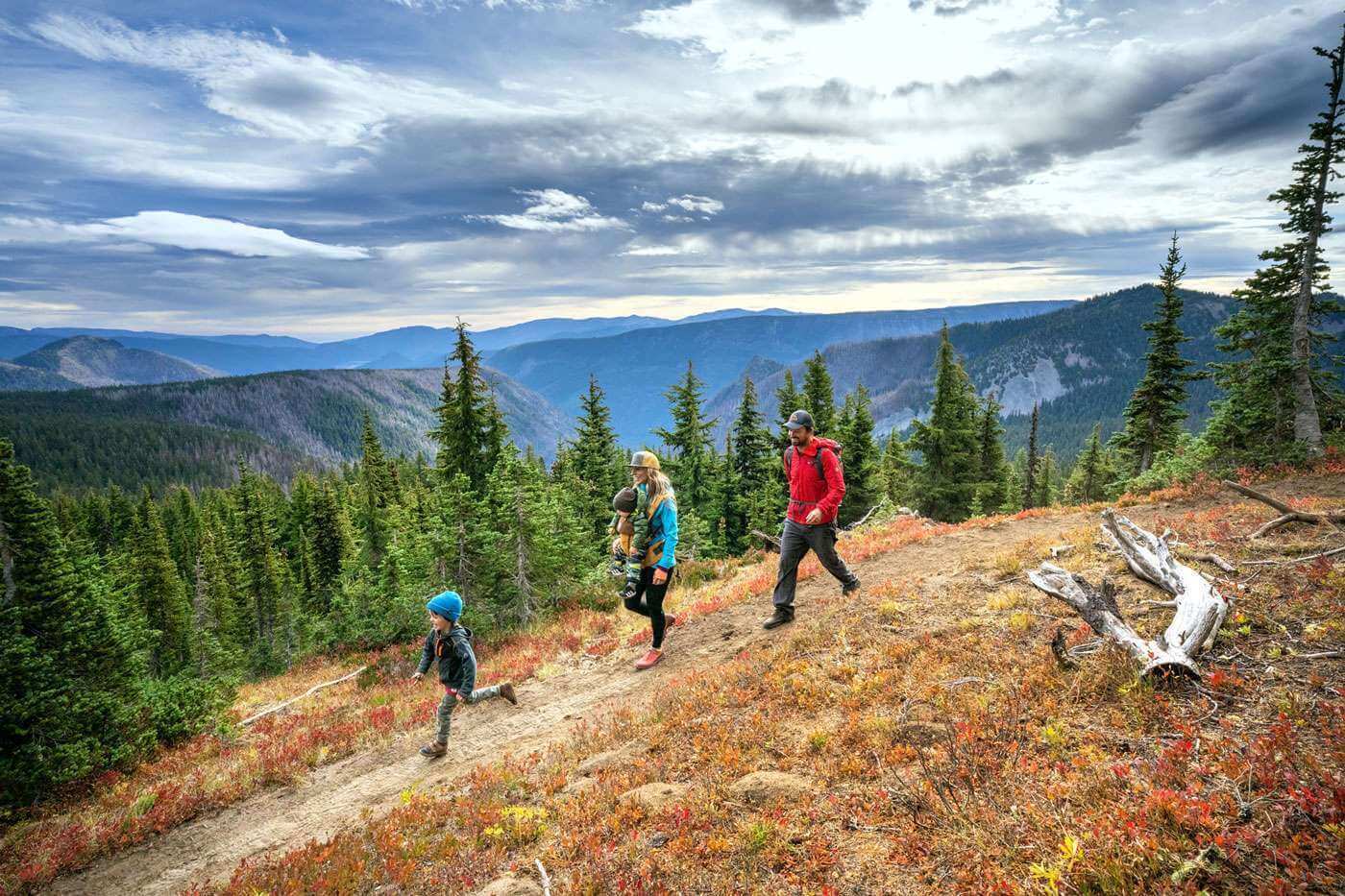
Additional resources
Looking for more detailed information about staying safe and recreating in Washington’s parks and other outdoor spaces? Find more resources below.
- Recreate Responsibly Coalition
- Washington State Parks
- Department of Fish & Wildlife
- Washington State Department of Natural Resources
- U.S. Forest Service: PNW Forests
- Know Where You’re Hiking: Guide to Public Lands in Washington
- King County Search and Rescue
- Olympic National Park Trip
- North Cascades National Park
- Mount Rainier National Park
